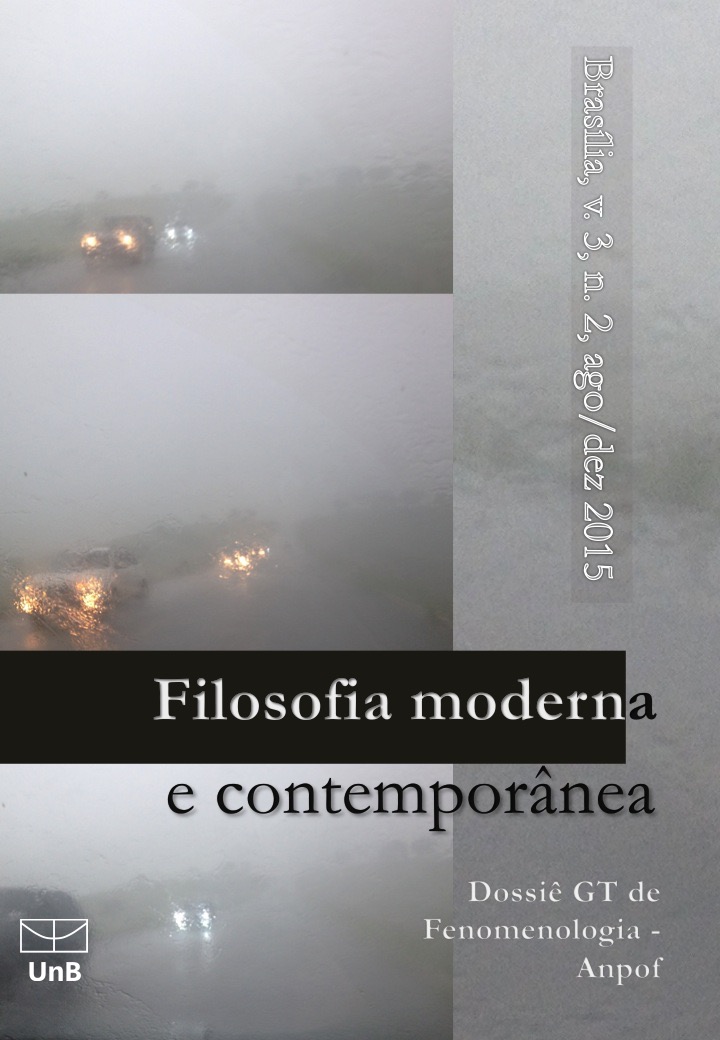Affirmation of the existence and elucidate the meaning of the world: the circularity in the double preoccupation of Husserl's phenomenology
DOI:
https://doi.org/10.26512/rfmc.v3i2.12509Keywords:
Edmund Husserl, Consciousness, World, Epoché, Phenomenological idealismAbstract
This article discusses initially the two implications of the phenomenological epoché, translated by the idea of the "loss" and "gain" of the world. Then it showsthat the question of the meaning of this "loss" and of this "gain" reveals a double preoccupation of Husserl: ensure the assertion of the existence of the world and promote the elucidation of the meaning of the world. The conclusion is that this double preoccupation reveals a kind of circularity: the world is revealed objectively in full sense by means of a method that can’t fail to affirm the existence of the world. This statement presupposes, in turn, a giving of meaning and therefore an originary consciousness.
Downloads
References
FRAGATA SJ, J. A Fenomenologia de Husserl como fundamento da filosofia. Braga: Livraria Cruz, 1956.
HUSSERL, E. Die Idee der Phänomenologie ”“ Fünf Vorlesungen. Husserliana (Band II). Netherlands: Martinuos Nijhoff, ([1907] 1950).
________ Ideen zu einer reinen Phänomenologie und phänomenologischen Philosophie. Erstes Buch: Allgemeine Einführung in die reine Phänomenologie. The Hague, Netherlands: Martinus Nijhoff, [1913] 1976.
________“Kant et l ´idée de la Philosophie Transcendantale”. In: Philosophie première 1923-1924: Histoire critique des idées. Appendice. 3ed. Collection Epimethée. Paris: PUF, [1924] 1970; pp. 299-368.
__________ “Author is Preface to the English Edition of Ideas”. In: McCormick, P. & Elliston, F (editors) Husserl, Shorter Works. Notre Dame, Indiana: University of Notre Dame Press / The Harvester Press, [1930] 1981; pp. 43-53.
__________ Cartesianische Meditationen und Pariser Vorträge. Husserliana (Band I). Den Haag, Netherlands: Martinus Nijhoff, ([1931]/ [1929] 1973.
Downloads
Published
How to Cite
Issue
Section
License
Copyright for articles published in this journal is retained by the authors, with first publication rights granted to the journal. By virtue of their appearance in this open access journal, articles are free to use, with proper attribution, in educational and other non-commercial settings.


